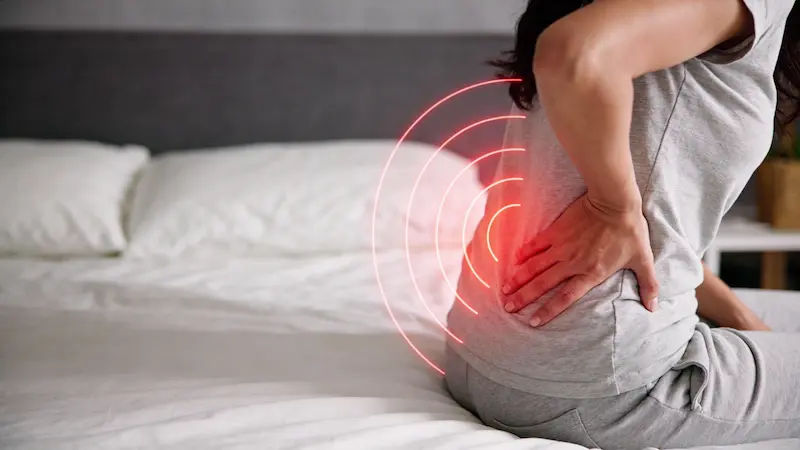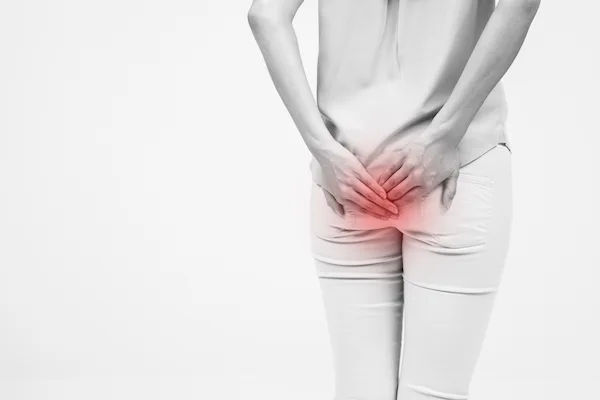Scar Inside Body After Hysterectomy
Learn about internal scarring after a hysterectomy, including how it forms and potential symptoms. Discover effective ways to manage adhesions and support a smooth recovery.

Written by Dr. Dhankecha Mayank Dineshbhai
Reviewed by Dr. Shaik Abdul Kalam MD (Physician)
Last updated on 13th Jan, 2026

Introduction
A hysterectomy is a common surgical procedure where a woman’s uterus, and sometimes other reproductive organs, is removed. While the surgery can provide relief from various health issues, it also leaves behind scars—both visible and internal. Many women worry about these internal scars, how they might affect their health, and what can be done to manage them.
In this article, we’ll discuss what internal scars after a hysterectomy are, how they form, their potential effects, and ways to care for your body during recovery.
What Are Internal Scars After Hysterectomy?
When you undergo a hysterectomy, the surgeon makes incisions (cuts) to remove the uterus. Depending on the type of hysterectomy—whether it’s abdominal, vaginal, or laparoscopic—the location and size of the scars will vary.
External scars – These are the visible marks on your skin where the incision was made.
Internal scars (adhesions) – These form inside the body as part of the natural healing process. When tissues are cut or damaged during surgery, the body produces scar tissue to repair them. Sometimes, this scar tissue can stick to nearby organs, forming adhesions.
1. How Do Internal Scars Form?
After surgery, the body sends collagen fibres to the affected area to help heal the wound. Ideally, these fibres should form a neat, flexible scar. However, sometimes they grow excessively or attach to other tissues, leading to adhesions.
2. Can Internal Scars Cause Problems?
Most internal scars heal well and don’t cause any issues. However, in some cases, adhesions can lead to:
Pain or discomfort – If scar tissue pulls on organs or nerves.
Digestive issues – If adhesions affect the intestines, leading to bloating or constipation.
Fertility concerns – Scar tissue may sometimes interfere with the ovaries or fallopian tubes if they haven’t been removed.
Bowel obstruction – Rarely, adhesions cause a blockage in the intestines.
Fortunately, not everyone develops problematic adhesions, and many women recover without complications.
Symptoms of Problematic Internal Scars
While some internal scarring is normal, certain signs may indicate that adhesions are causing issues:
Persistent pelvic or abdominal pain, especially if the discomfort increases over time.
Bloating or digestive discomfort such as gas, constipation, or difficulty passing stool.
Pain experienced during movement or physical activity.
Noticeable changes in bowel habits, particularly if the adhesions are affecting the intestines.
If you experience any of these symptoms after a hysterectomy, consult your doctor.
Consult Top Specialists for Your Symptoms
How to Manage and Reduce Internal Scarring
While you can’t completely prevent internal scars, certain steps can help minimise adhesions and promote healing:
1. Follow Post-Surgery Care Instructions
Proper care in the initial recovery phase can significantly influence how internal tissues heal.
Rest as advised by your doctor.
Avoid heavy lifting or strenuous activity for the recommended time.
Keep the surgical area clean to prevent infections that could worsen scarring.
2. Stay Hydrated and Eat a Healthy Diet
Nutrition plays a crucial role in tissue repair and overall recovery.
Drink plenty of water to help tissue repair.
Eat fibre-rich foods like fruits, vegetables, and whole grains to prevent constipation.
Include protein from sources like lean meats, eggs, and beans to support healing.
3. Gentle Movement and Physical Therapy
Gradual movement encourages circulation and helps prevent stiffness or complications.
Light walking helps improve circulation and prevents stiffness.
Pelvic floor exercises, once cleared by your doctor, can strengthen muscles.
Physical therapy may help if adhesions cause mobility issues.
4. Massage and Scar Tissue Therapy
Once your body has sufficiently healed, targeted therapies may ease internal tension.
Gentle abdominal massage may help soften adhesions.
Some women benefit from myofascial release therapy, a type of massage.
5. Medical Treatments (If Needed)
In some cases, medical intervention may be necessary to relieve persistent symptoms.
Prescribed pain relievers can help with discomfort.
In rare cases, a minor procedure may be needed to remove problematic adhesions.
When to See a Doctor
Most internal scars heal naturally, but seek medical advice if you notice:
Severe or worsening pain.
Unexplained bloating, nausea, or vomiting.
Difficulty with bowel movements or urination.
Fever or signs of infection like redness, swelling, or discharge.
Your doctor may recommend imaging tests like an ultrasound or MRI to check for adhesions.
Final Thoughts
Internal scarring after a hysterectomy is a normal part of healing, but it’s important to monitor your body and follow recovery guidelines. Most women recover well, but if you experience unusual symptoms, don’t hesitate to reach out to your healthcare provider.
If you have concerns about post-hysterectomy recovery or need expert advice, you can book a consultation with a gynaecologist on Apollo 24|7 for personalised care.
Consult Top Gynaecologists
Consult Top Specialists for Your Symptoms
Dr. K Anusha
Obstetrician and Gynaecologist
4 Years • MBBS, DGO
Yemmiganur
SRINIVASAA HOSPITAL, Yemmiganur

Dr. Damayanti Pentiyala
Obstetrician and Gynaecologist
27 Years • MBBS, MD
Khammam
Kinnera Hospital, Khammam
(275+ Patients)

Dr. Vineet Mishra
Infertility Specialist
36 Years • MD, Phd, DSc
Ahmedabad
Apollo Hospitals - Gandhinagar, Ahmedabad, Ahmedabad

Dr. Shruti I
Obstetrician and Gynaecologist
7 Years • MBBS, MS (OBSTETRICS & GYNAECOLOGY)
Bangalore
Apollo Clinic Bellandur, Bangalore

Dr. Srinka Mukherjee
Obstetrician and Gynaecologist
7 Years • Obstetrics & Gynaecology
Bansdroni
Siddhita Healthcare., Bansdroni
Consult Top Gynaecologists
Dr. K Anusha
Obstetrician and Gynaecologist
4 Years • MBBS, DGO
Yemmiganur
SRINIVASAA HOSPITAL, Yemmiganur

Dr. Damayanti Pentiyala
Obstetrician and Gynaecologist
27 Years • MBBS, MD
Khammam
Kinnera Hospital, Khammam
(275+ Patients)

Dr. Vineet Mishra
Infertility Specialist
36 Years • MD, Phd, DSc
Ahmedabad
Apollo Hospitals - Gandhinagar, Ahmedabad, Ahmedabad

Dr. Shruti I
Obstetrician and Gynaecologist
7 Years • MBBS, MS (OBSTETRICS & GYNAECOLOGY)
Bangalore
Apollo Clinic Bellandur, Bangalore

Dr. Srinka Mukherjee
Obstetrician and Gynaecologist
7 Years • Obstetrics & Gynaecology
Bansdroni
Siddhita Healthcare., Bansdroni




